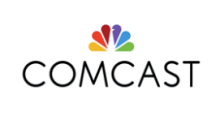
Fast, affordable Internet access for all.

On November 4th, voters in several Colorado communities decided to reclaim local authority to provide telecommunications services. As Coloradans celebrated their steps toward self-reliance, Comcast felt a little quiver in its cowboy boots. KMGH in Denver is now reporting that Comcast plans to double Internet speeds at no extra charge for some Colorado customers. Customers now signed up for download speeds of 25 Mbps or 50 Mbps will see their speeds double at no extra charge by the end of the year.
KMGH reporter Ryan Tronier also notes that the recent election may have played a part in Comcast's decision to turn up the speed:
While the doubling of internet speeds is great news for Comcast customers, the move may not be as benevolent as it seems.
Comcast's announcement comes on the heels of seven Colorado cities and counties deregulating restrictive internet laws during the midterm elections.
As many of our readers know, SB152 was passed in 2005 and prevents local governments from establishing telecommunications utilities unless voters approve an exemption. Exemptions passing in Boulder, Wray, Yuma, Cherry Hills Village, Red Cliff, Yuma County, San Miguel County, and Rio Blanco County appear to have been inspired by similar ballot measures years prior in Centennial, Montrose, and Longmont. Longmont is well into deploying its FTTH network.
With President Obama's recent support for reclassification to Title II as part of a free and open Internet plan, and Comcast's ongoing bid to merge with Time Warner Cable, a number of factors are still unsettled. Comcast is inclined to strategically present tidbits like this as a way to sweeten public perception when they want something of value.
Internet Essentials, Comcast's program for low income families was unveiled at a time when the cable behemoth wanted approval for its NBC acquisition. CEO David Cohen has admitted that it was used as a bargaining chip and it has since proved itself to be as much an obstacle as a tool. Unfortunately, Internet Essentials customers will not be included in this speed increase. In a place like Colorado where local communities are asserting their independence from one of the most hated companies in America, turning up the speed for free is the least Comcast can do.
Nevertheless, this is the latest example of how municipal networks, or the possibility of them, can inspire positive behavior from incumbents. In Columbia, Missouri, the local business community could not get adequate services from CenturyLink. After announcing its intention to explore municipal fiber resources for commercial uses, CenturyLink decided it would offer gigabit service to a limited number of properties.
Colorado Comcast customers can expect their free speed increases by the end of 2014. While the increases are great news for existing customers, they do nothing for competition or for rural folks who are not served by the cable giant. Comcast customers who live in Denver can thank voters in Boulder, Wray, Yuma, Cherry Hills Village, Red Cliff, Yuma County, San Miguel County, and Rio Blanco County for their faster Internet speeds.
